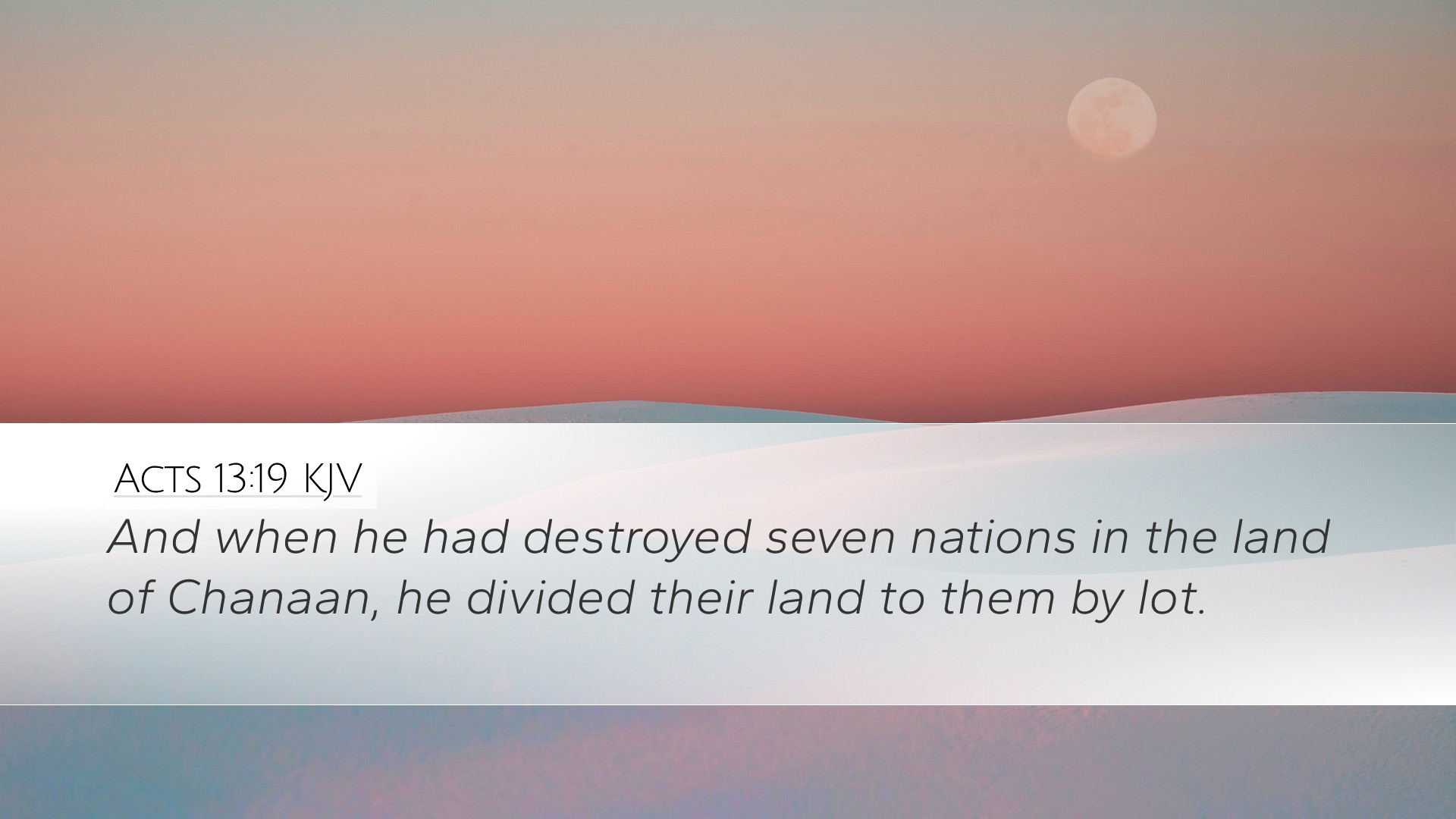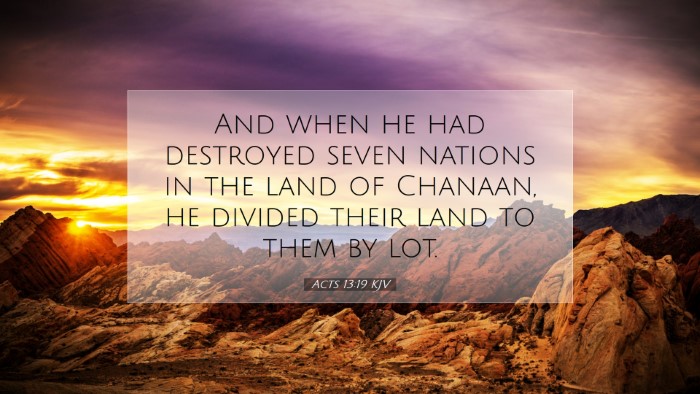Commentary on Acts 13:19
Acts 13:19: "And when he had destroyed seven nations in the land of Canaan, he gave them their land to inherit."
Introduction
This significant verse from Acts 13:19 recounts a pivotal moment in the history of Israel, highlighting God's providence and the fulfillment of His promises. In this commentary, we will synthesize insights from various public domain commentaries to reflect on the theological implications and historical context of this passage.
Contextual Background
The Apostle Paul, in this chapter, delivers a powerful sermon in the synagogue at Antioch of Pisidia. His speech intricately weaves the history of Israel to reveal how it culminates in Jesus Christ. Acts 13:19 refers back to God's conquests in Canaan, underscoring His sovereign control over nations and His covenant with Israel.
Detailed Exegesis
The phrase "when he had destroyed seven nations" is significant because it invokes the earlier narratives found in the Old Testament, particularly in Deuteronomy and Joshua. Matthew Henry elaborates on this, noting that these nations, representative of the wickedness of the Canaanites, were removed to establish a people for God.
Albert Barnes emphasizes the selective destruction of these nations, stating that God's judgment was both just and necessary for the establishment of Israel. The verse serves as both a historical account and a reminder of the consequences of idolatry and immorality that characterized these nations.
Adam Clarke expands on the notion of the "land of Canaan," illustrating how the land was not merely a geographical location but a place of divine promise. The inheritance of the land is a critical theme throughout the Torah and signifies a tangible representation of God’s blessing and fidelity to His people.
Theological Implications
The act of destroying seven nations can be viewed through various theological lenses:
- Divine Sovereignty: The selection of Israel among the nations is evidence of God's sovereign choice. Henry remarks on how this underscores God’s authority over creation.
- Judgment and Mercy: While the destruction of nations highlights God's judgment against sin, it simultaneously showcases His mercy in preserving a remnant for His purpose. Barnes notes the balance between justice and grace.
- Covenant Faithfulness: The gift of the land signifies God’s faithfulness to His covenant with Abraham, Isaac, and Jacob. Clarke points out that this inheritance was not merely deserved but rather a fulfillment of divine promise.
Application for Today’s Church
This passage encourages contemporary readers to reflect on the nature of God’s promises and the importance of obedience. As Paul articulates God’s redemptive plan, pastors and theologians can draw parallels to the continuity of God’s work through history.
- Faithfulness of God: Just as God preserved Israel through challenges, believers today can trust in His unchanging nature amidst trials.
- Call to Holiness: The destruction of wicked nations poses a challenge for believers to recognize and combat spiritual opposition within their own lives.
- Hope in Redemption: Paul’s message ultimately points toward salvation through Christ, providing assurance that God’s plan is always aimed towards redemption.
Conclusion
Acts 13:19 serves as a reminder of God’s sovereignty and His intricate plan for humanity. By revisiting the historical conquests and the establishment of Israel, Paul asserts the faithfulness of God amidst the unfolding narrative of salvation history culminating in Jesus Christ. For pastors and scholars alike, this text invites deeper study into the nature of divine promise and the faithful responses expected from God’s people.


